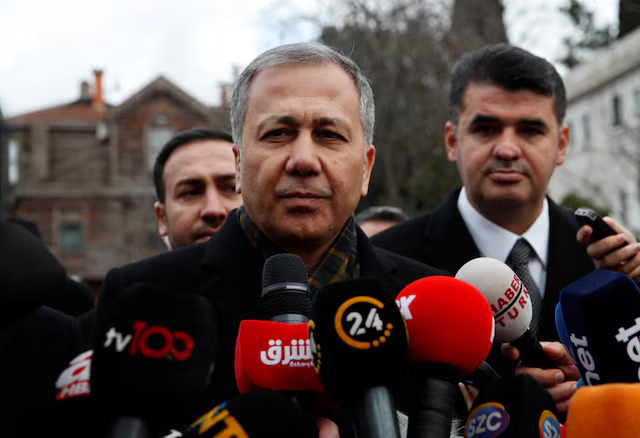Turkish police detained nearly 300 PKK suspects individuals allegedly connected to the outlawed militant group, the government announced on Tuesday. Among those apprehended are journalists, politicians, and academics, highlighting the broad scope of the crackdown that has drawn widespread concern.
Over the past five days, police raids have targeted various locations across the country, reflecting the Turkish government’s intensified efforts to dismantle alleged networks associated with the PKK. This surge in detentions coincides with the ongoing removal of elected pro-Kurdish mayors from their positions, further escalating tensions in the region. The government claims these officials have ties to the PKK, an organization designated as a terrorist group by Turkey and its Western allies.
The PKK has been engaged in an armed insurgency against the Turkish state since 1984, seeking greater Kurdish autonomy and rights. The conflict has resulted in the deaths of more than 40,000 people, making it one of the most protracted and deadly conflicts in modern history. As Turkey grapples with internal and external pressures, the recent detentions signal a renewed commitment to addressing what the government perceives as threats to national security.
Notably, the individuals detained include members of the Peoples’ Democratic Congress (HDK) and its affiliated smaller leftist parties. The arrests also encompass academics and a prominent LGBTQ rights activist, underscoring the crackdown’s far-reaching implications for civil society in Turkey. Critics argue that the government’s actions are not only aimed at combating terrorism but also at stifling dissent and suppressing voices advocating for minority rights.
This latest wave of arrests has sparked outrage among human rights organizations and opposition groups, who argue that the government is using the PKK’s designation as a terrorist organization to justify the suppression of legitimate political opposition. The government, however, maintains that its actions are necessary to ensure national security and stability in a region that has historically been fraught with conflict.
As the Turkish government intensifies its efforts to eradicate PKK influence, there are emerging signs that the long-standing conflict may be approaching a turning point. Recent discussions have hinted at the possibility of renewed peace talks aimed at resolving the decades-long strife. However, the ongoing crackdown on dissent raises questions about the government’s commitment to genuine dialogue and reconciliation with the Kurdish population.
The PKK’s demands for greater autonomy and rights for Kurds in Turkey have long been a contentious issue, and the government’s hardline approach may further alienate Kurdish communities. Observers warn that without addressing the underlying grievances and fostering an inclusive political environment, Turkey risks perpetuating cycles of violence and unrest.
As Turkey navigates this complex landscape, the international community watches closely, urging the government to uphold human rights and engage in constructive dialogue with all segments of society. The recent detentions serve as a stark reminder of the challenges facing Turkey as it seeks to balance national security concerns with the imperatives of democracy and human rights.
In conclusion, the detention of 282 suspects linked to the PKK marks a significant moment in Turkey’s ongoing struggle with Kurdish militancy and political dissent. As the government intensifies its crackdown, the implications for civil society, political representation, and the prospects for peace remain uncertain. The coming weeks will be crucial in determining whether Turkey can navigate these challenges and move toward a more inclusive and peaceful future.



